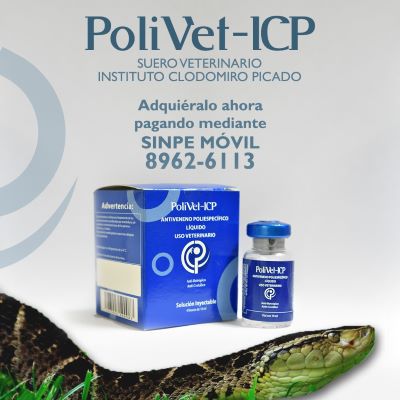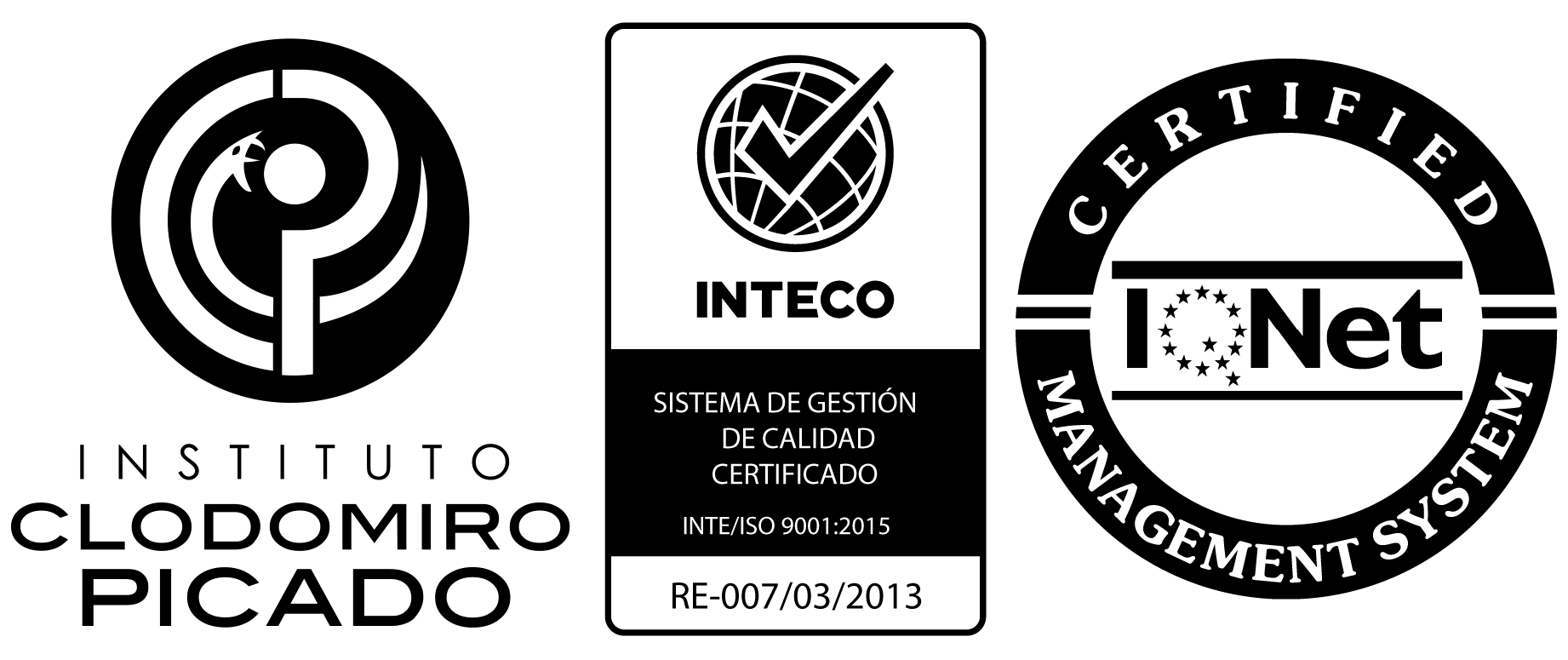Information for Veterinarians
Veterinarians can find here a report form for cases of ophidic accidents they have attended. We thank you in advance for your collaboration.
Veterinary Serum
Most of the ophidic envenomings that happen to animals in Central America are caused by vipers, mainly the fer-de-lance snake (Bothrops asper). These envenomings have effects like inflammation and bleeding on the site of the bite; and coagulopathy, hemorrhage on a systemic level. Envenomings frequently lead to the death of the animal.
The snakebite envenoming diagnosis is done by assessing the clinical profile of the site of the bite and by confirming the inability of the blood to coagulate in less than 60 minutes (the normal coagulation time is around 20 minutes). Profiles in which clinical manifestations are limited to local symptomatology can be considered as mild envenomings. Some animals with mild envenomings can display coagulopathy 4 hours after the ophidic accident, which should be a considered as a case of moderate envenoming. If the animal has blood-stained feces or urine, or nose, blood, or ear hemorrhage, the case should be considered a severe envenoming.
PoliVet-ICP is an equine immunoglobulin preparation that identifies toxins specific to venoms of Central American vipers, and neutralizes their ability to cause damage (mainly on a systemic level). The maximum efficacy of PoliVet-ICP is obtained by administering the serum intravenously during the first six hours after the envenoming. When the antivenom is administered 12 hours after the accident, the probabilities of rescuing the animal are considerably reduced.
The PoliVet-ICP dosage depends on the animal species involved and the severity of the envenoming. The veterinarian should decide the correct dosage of PoliVet-ICP to administer in each case.
The efficacy of the antivenom treatment should be evaluated six hours after its application, when the blood of the envenomed animal should have recovered its coagulating ability. If it hasn't, an additional antivenom dose should be applied, and the veterinary must reassess six hours later.
The administration of PoliVet-ICP is related to a rate of adverse reactions lower than 4%. These reactions manifest mainly as a general rash. In case of respiratory compromise, the administration of intravenous adrenaline is recommended.




